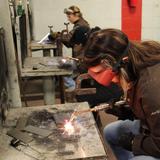- North Hennepin Community College is committed to educating a diverse community of learners to maximize their intellectual, creative and leadership potential.
School Highlights
North Hennepin Community College serves 7,120 students (23% of students are full-time).
The college's student:teacher ratio of 25:1 is higher than the state community college average of 22:1.
Minority enrollment is 58% of the student body (majority Black), which is more than the state average of 42%.
Quick Stats (2025)
- Enrollment: 7,120 students
- In-state tuition: $4,358
- Out-state tuition: $4,358
- Student:teacher ratio: 25:1
- Minority enrollment: 58%
- Source: Integrated Postsecondary Education Data System (IPEDS)
Top Rankings
North Hennepin Community College ranks among the top 20% of public schools in Minnesota for:
Category
Attribute
Affordability
Diversity
School Resources
Community Size
School Overview
The teacher population of 290 teachers has stayed relatively flat over five years.
North Hennepin Community College
(MN) Community College Avg.
Carnegie Classification
Associate's Colleges: High Transfer-High Nontraditional
Associate's Colleges: Mixed Transfer/Career & Technical-Mixed Traditional/Nontraditional
Institution Level
At least 2 but less than 4 years
At least 2 but less than 4 years
Institution Control
Public
Public
Total Faculty
290 staff
153 staff
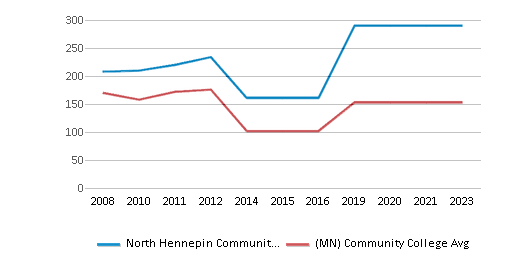
School Calendar
Student Body
The student population of North Hennepin Community College has grown by 14% over five years.
The student:teacher ratio of 25:1 has increased from 20:1 over five years.
The North Hennepin Community College diversity score of 0.73 is more than the state average of 0.63. The school's diversity has stayed relatively flat over five years.
Total Enrollment
7,120 students
2,555 students
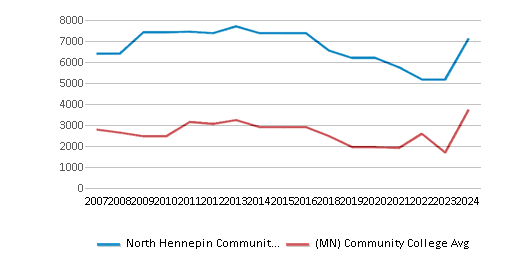
Student : Teacher Ratio
25:1
22:1
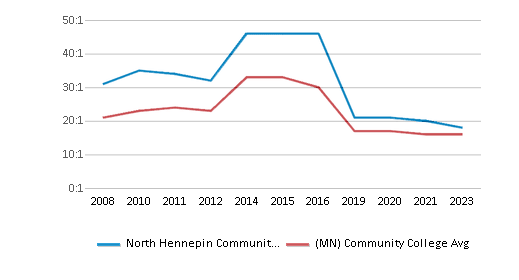
# Full-Time Students
1,643 students
915 students
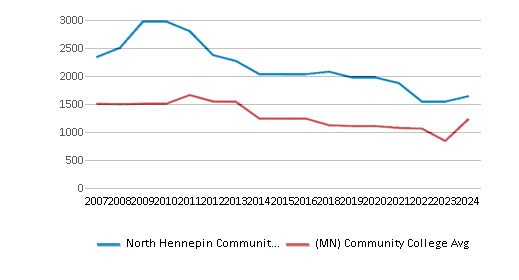
# Part-Time Students
5,477 students
1,808 students
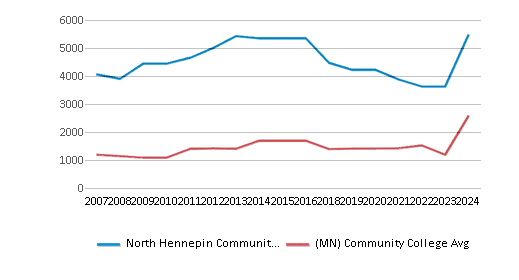
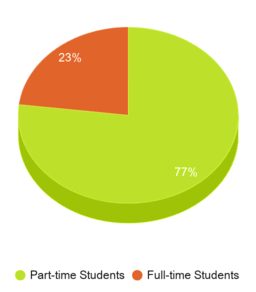
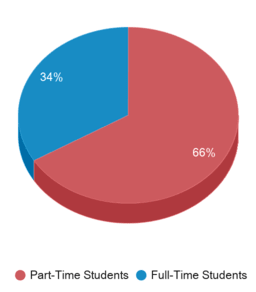
# Enrollment Undergraduate
712 students
372 students
# Full-Time Undergraduate Students
1,643 students
842 students
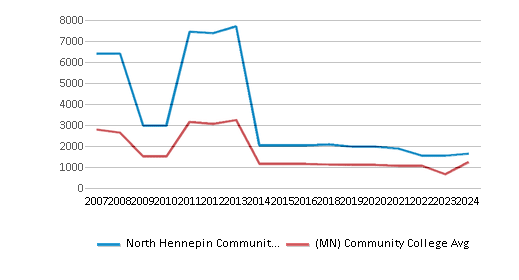
# Full-Time Graduate Students
n/a
38 students
# Part-Time Undergraduate Students
5,477 students
1,771 students
# Part-Time Graduate Students
n/a
12 students
Total Dormitory Capacity
n/a
116 students
% American Indian/Alaskan
n/a
1%
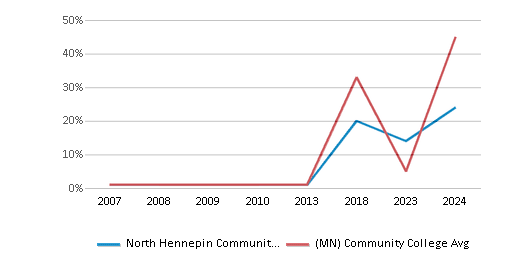
% Asian
15%
6%
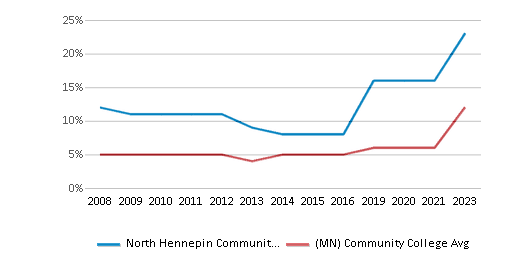
% Hispanic
8%
8%
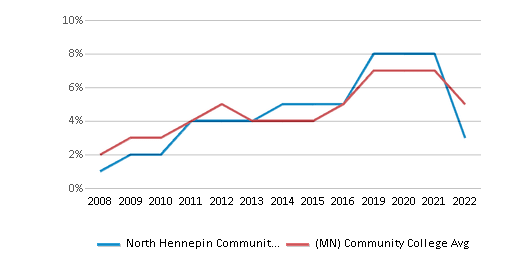
% Black
25%
15%
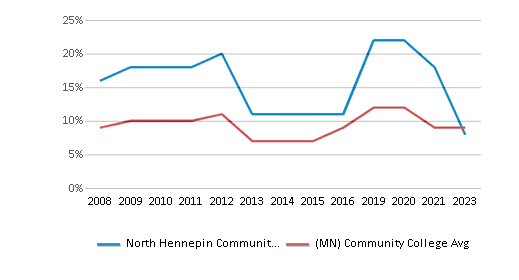
% White
42%
58%
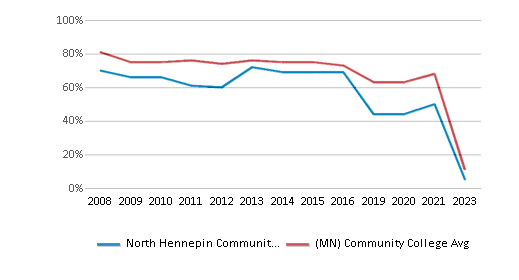
% Hawaiian
n/a
1%
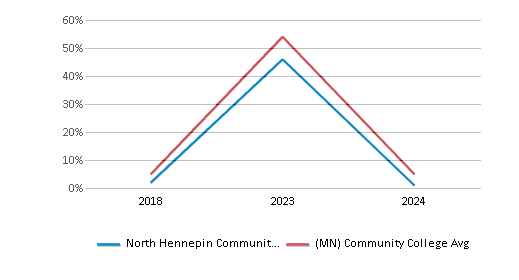
% Two or more races
6%
4%
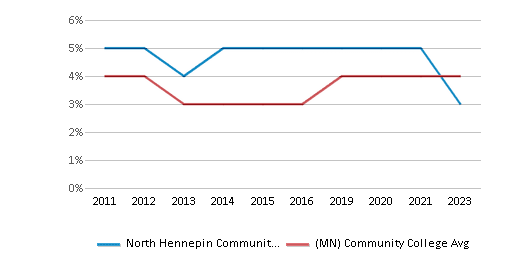
% Non Resident races
1%
1%
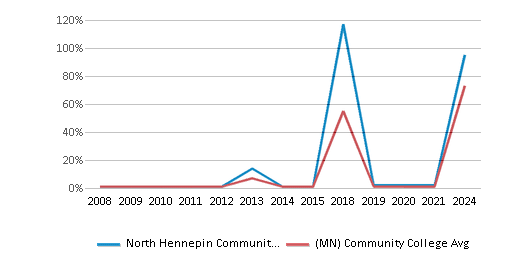
% Unknown races
3%
6%
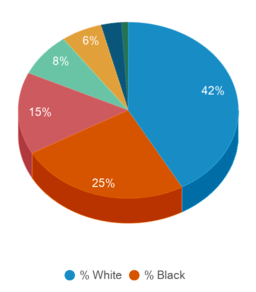
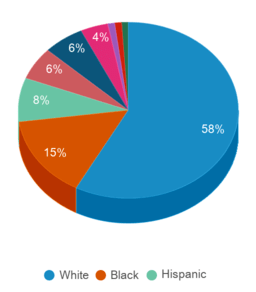
Diversity Score
0.73
0.63
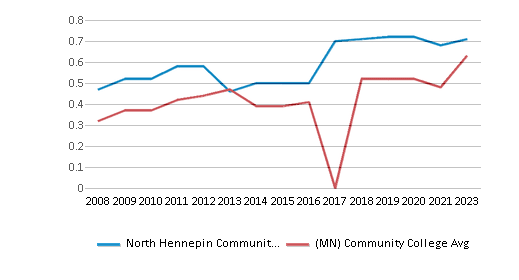
College Completion Rate (Students who graduate in less than 4 years)
0.1308%
0.3421%
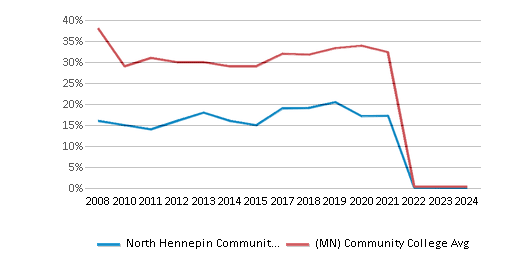
College Completion Rate (Students who graduate in 4 years or more than 4 years)
n/a
0.5652%
Average Graduate Earnings (10 Years)
$39,200
$36,900
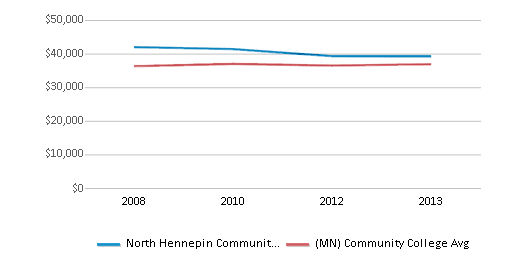
Tuition and Acceptance Rate
The public in-state tuition of $4,358 is less than the state average of $5,489. The in-state tuition has declined by 5% over four years.
The public out-state tuition of $4,358 is less than the state average of $6,145. The out-state tuition has declined by 5% over four years.
In-State Tuition Fees
$4,358
$5,489
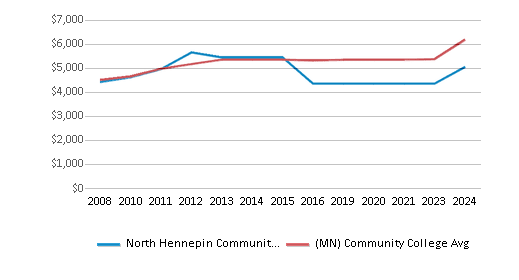
Out-State Tuition Fees
$4,358
$6,145
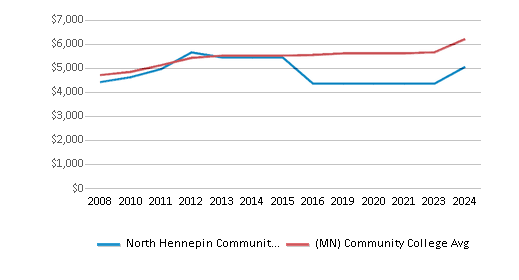
Tuition Notes
$168.20 online credi
% Students Receiving Some Financial Aid
98%
89%
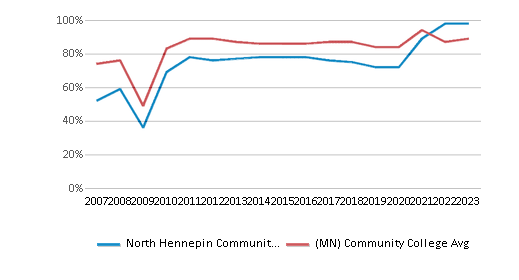
Median Debt for Graduates
$15,050
$12,264
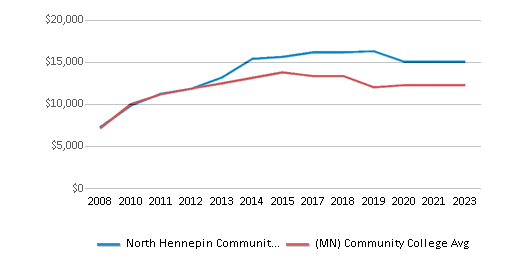
Median Debt for Dropouts
$7,790
$6,747
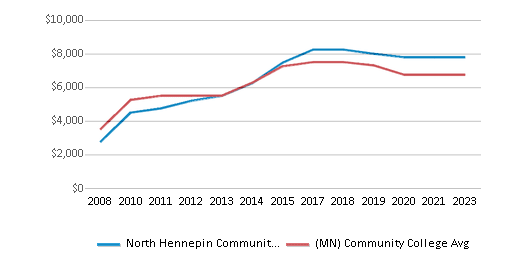
Acceptance Rate
n/a
94%
SAT Reading
n/a
625
SAT Math
n/a
600
SAT Writing
n/a
565
ACT Composite
n/a
24
ACT English
n/a
24
ACT Math
n/a
23
ACT Writing
n/a
8
Source: 2024 (or latest year available) Integrated Postsecondary Education Data System (IPEDS) , School Administrators
School Notes
- In 1963 the Minnesota Legislature created the Minnesota State Junior College Board and provided for 15 colleges, including on that was to be located in the Northwest area of Hennepin County. North Hennepin Junior College opened its doors to 414 students in the year 1966. North Hennepin State Junior College changed its name to North Hennepin Community College in the year 1973. North Hennepin Community College is part of the Minnesota State Colleges and Universities system and is located in Brooklyn Park, Minnesota ' a rapidly growing Minneapolis/St. Paul suburb. The College serves the Northwest metropolitan area including the communities of Brooklyn Park, Maple Grove, Osseo, Champlin, Brooklyn Center, New Hope, Robbinsdale, Crystal, Plymouth, Minneapolis, Fridley, Blaine, Spring Lake Park, Coon Rapids, Corcoran, Rogers, St. Michael, Buffalo, Rogers, Elk River, Monticello, Dayton and others. At North Hennepin you can earn your Associate Degree Associate in Arts (A.A.) degree Associate in Science (A.S.) degree Associate in Applied Science (A.A.S.) degree. Most of our classes are designed to allow you to transfer credits to four-year colleges and universities. The Center for Training and Development offers non-credit continuing education and customized training programs. North Hennepin makes it possible for students to continue working while taking classes with every-Other weekend college, accelerated programs, web enhanced programs, online programs, flexible-hour programs and off-campus classes offered at our Wright County Center.
Frequently Asked Questions
How much does North Hennepin Community College cost?
North Hennepin Community College's tuition is approximately $4,358 for In-State students and $4,358 for Out-State students.
What is North Hennepin Community College's ranking?
North Hennepin Community College ranks among the top 20% of community college in Minnesota for: Least expensive tuition, Diversity in US community colleges, Percent of students receiving financial aid and Largest student body.
Recent Articles

Obtaining Your Bachelor's Degree at a Community College
Explore the evolving landscape of community colleges offering bachelor's degrees, addressing affordability, accessibility, and workforce needs.

A to Z of Community College Certificates and Courses
From business and healthcare to technology and skilled trades, the article showcases the breadth of options available to students seeking to enhance their knowledge, develop new skills, or pursue career advancement.

What is a Community College?
This comprehensive guide explains what a community college is, its history, and its role in higher education. It covers the types of programs offered, differences from four-year colleges, benefits of attending, and important considerations for prospective students, providing valuable insights for those exploring educational options.

